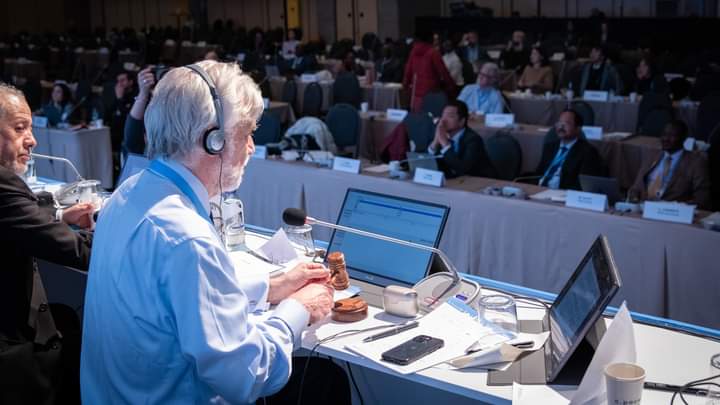The Intergovernmental Panel on Climate Change (IPCC) has outlined its comprehensive plan for the seventh assessment cycle during the 60th Plenary session in Istanbul, Türkiye.
Over 300 delegates from 120 governments reached a consensus on the scientific structure of work, paving the way for essential reports on climate change science.
During the four-day meeting, governments committed to producing three crucial Working Group contributions to the Seventh Assessment Report: the Working Group I report on the Physical Science Basis, the Working Group II report on Impacts, Adaptation, and Vulnerability, and the Working Group III report on Mitigation of Climate Change. The Synthesis Report, summarizing the findings, is expected to be released by late 2029 after the completion of the Working Group reports.
Notably, the IPCC had previously decided to generate a Special Report on Climate Change and Cities and a Methodology Report on Short-lived Climate Forcers. Additional tasks for scientists include delivering a Methodology Report on Carbon Dioxide Removal Technologies, Carbon Capture Utilization, and Storage.
In a significant move, a revision of the 1994 IPCC Technical Guidelines on impacts and adaptation, along with the development of adaptation indicators, metrics, and guidelines, will accompany the Working Group II report as a separate product.
IPCC Chair Jim Skea highlighted the importance of these decisions, stating, "The Panel has taken a critical step in plotting the course for the entire cycle."
He said their decisions reflect the interest of member governments in getting policy-relevant, timely, and actionable scientific information as soon as possible and providing input to the 2028 second Global Stocktake, adding that, there is a notable emphasis on adaptation to climate change.
This decision signals the commencement of intensive scientific work for the new assessments of climate change science. It sets the tone for the organization's dedication to delivering crucial information for effective policy-making. Delegates also addressed budgetary matters and expanded the participation of observer organizations in the IPCC's activities, underlining this strategic roadmap's collaborative and inclusive nature.
Latest Stories
-
These Americans are done with Trump. So they’re leaving America
33 minutes -
Emirates and Air China ink MoU to explore enhanced partnership
45 minutes -
OSP flew out to meet Samuel Mahama; same approach should apply to Ken Ofori-Atta – Baffour Awuah
1 hour -
‘Ken Ofori-Atta is not a fugitive’ – Prof Ansa-Asare
2 hours -
Suicide bomber killed in Uganda on Christian holy day, army says
2 hours -
Harvey Weinstein used Hollywood clout to abuse women, prosecutor tells jury
2 hours -
Sean ‘Diddy’ Combs paid hotel security officer to hand over video, jury hears
3 hours -
Nigeria’s defence chief proposes fencing borders to curb insecurity
3 hours -
Local firms drive new growth phase in Nigeria’s oil sector
3 hours -
Mali suspends artisanal gold mining activities due to weather conditions
3 hours -
UK temporarily spared from Trump’s 50% metal tariffs
3 hours -
South African court dismisses opposition party’s fuel levy challenge
4 hours -
Euthanasia activist arrested over ‘suicide pod’ dies
4 hours -
If Ofori-Atta’s presence is crucial, then OSP’s case is weak – Nana Agyei Baffour Awuah
4 hours -
OSP declaring Ken Ofori-Atta a fugitive violates constitution – Prof Ansa-Asare
5 hours

